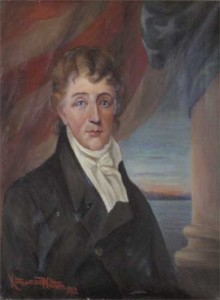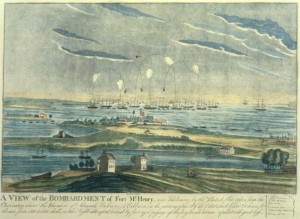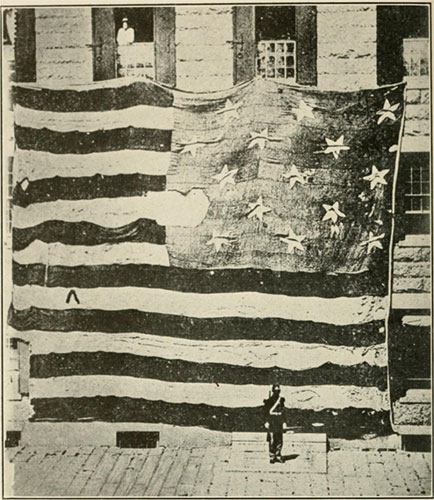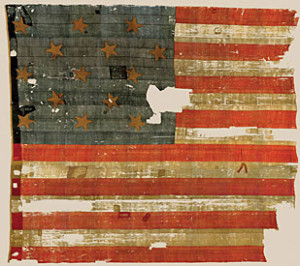National Anthem marks 200 years | The Star-Spangled Banner

September 14 celebrates the bicentennial of “The Star-Spangled Banner.” The creation of the poem about the American flag involved coincidences, luck and deliberate decisions.
A few days before he watched “the rockets’ red glare and bombs bursting in air,” Francis Scott Key had no idea he would witness the 1814 bombardment of Fort McHenry in Baltimore’s harbor by British naval forces.
Although a native of that Maryland city, Key, a lawyer, had lived in the Washington, D.C., area for several years. More to the point, he opposed to the War of 1812, calling it “abominable” and “a lump of wickedness.”
Nonetheless, he agreed to take part in a peaceful effort to retrieve an American prisoner held on one of the British ships menacing the fort. On Sept. 7, Key boarded the Tonnant and presented evidence – including the testimony of English officers – that the POW was innocent. The British agreed to free the man, but only after their assault on Fort McHenry, which was named for a Maryland signer of the Constitution.

Had they allowed Key to leave immediately, he would not have seen the attack and, therefore, would never have written “The Star-Spangled Banner,” which he originally titled “Defence of Fort M’Henry.”
Aboard the U.S. boat that had brought him into the harbor, Key watched the hellish bombs and rocket launches that lasted more than a day. Inspired by seeing the American flag when the sun came up and the assault ended, Key reached for something on which to write a poem. If there were no papers on him, there would be no celebratory verses. But he fished out a letter and scrawled his lyrics on the back.
Key continued writing as he sailed back to shore with the POW and later at a Baltimore inn. Almost immediately, the flag poem was printed in a newspaper and spread throughout the 15-state nation. Just as swiftly, it was turned into a song to the tune of “Anacreon in Heaven,” an 18th-century melody.


And therein lies another stroke of fortune. Key knew that song and had crafted his poem so that its meter fit the tune’s notes. In fact, in 1805, he had written another poem, containing the phrase “star-spangled flag,” to the same melody.
Reflecting on his opposition to the war, Key later said that watching the attack changed him. “The brave and the free had met the invaders,” he said. “Do not such a country and such defenders…deserve a song?”
